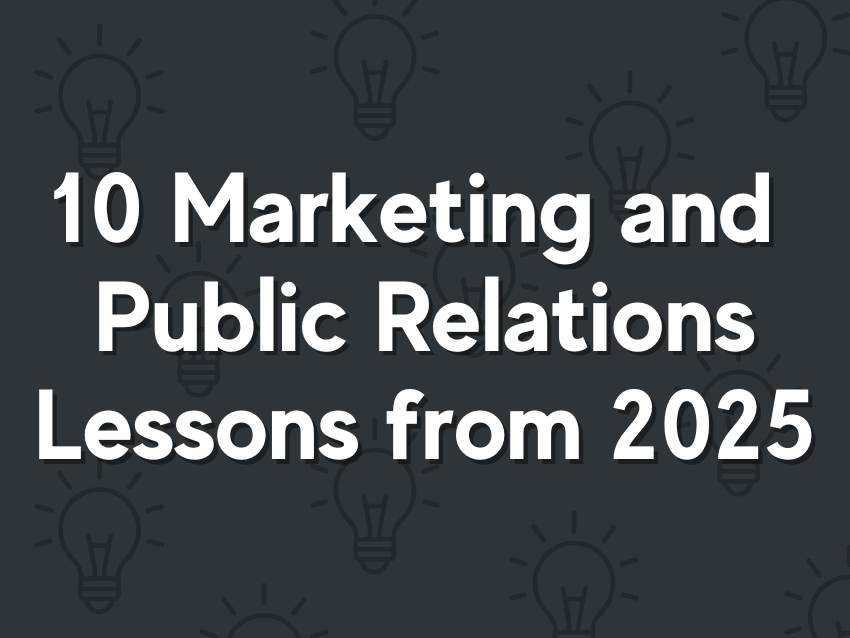By: Sharon Berman,
Published: Verdicts & Settlements
Marketing budgets are usually thrown in the same category as diets – restrictive. There is never enough money to go around. Yet developing a marketing budget can be one of the most important things a company does. Talk about marketing budgets and the same questions usually come up, including, “How much are my competitors spending?” and “What is the industry standard?”
Although it’s nice to know the answers to these questions, each company has to decide what kind of marketing commitment it is willing and able to make. In large measure, this decision should be based on what the company’s marketing program is designed to accomplish.
In developing a marketing budget, keep in mind that marketing is an investment. Yes, some people scoff at that notion, viewing it as a marketer’s spin on what is clearly an expense. Marketing is an expense in the sense that you have to lay out money. But it’s an expense with the potential of reaping a profitable return – either short- or long-term.
The Importance of Prioritizing
Careful evaluation always should precede formulating a budget. Figure what your marketing objectives, strategies and tactics. No matter what the size of the company involved, there are never enough marketing dollars to go around – which means prioritizing is crucial. Based on the priorities you establish and their costs, you can determine an affordable budget that will achieve your goals.
Draw up a list of all the marketing goals you can think of for your company. How do you know what the highest priorities are? Ask yourself these questions: “If I could achieve only one goal on my list, which would I choose?” “If I could achieve only two goals, which would I want them to be?”
Here are some tips for developing your marketing budget:
As a starting point, look at what you spent last year on marketing and break that down by category. Categories you’ll want to specify include advertising, entertaining, direct mail, postage related to marketing and web site design. Closely examine each area and evaluate the return you received on your investment.
Understand that some returns are easier to gauge than others. If entertaining existing and potential clients accounted for a large percentage of your marketing dollars, what kind of value did you receive from it? Relationships can be difficult to measure, but if you feel your dollars were well-spent, that’s great! On the other hand, if your firm subscribed to concerts, sporting events, etc, but they went unused – because nobody thought about the event till the day of — your dollars could have been better spent elsewhere.
How do you know how much to spend? That depends on what your objectives are. For example, if you’re launching a new product line, you’ll need a larger budget than if you’re carrying out maintenance marketing of an existing product. If your aim is to increase your visibility in your target markets, developing a tactical public relations plan will be important.
Think about how, where and when will you implement that plan, and what the associated costs will be. A useful exercise is to develop three different marketing plans: One is your realistic wish list; another is your middle-of-the-road plan; the third is a bare-bones plan that nevertheless can create some movement.
Your marketing budget needs to support your particular strategies and tactics. For each tactic, you’ll want to set a target return – such as the number of inquiries, increase in product off the shelf, or number of new customers. Doing so will later help you determine the success of your marketing efforts.
Stretching Your Marketing Dollars
Do your homework to see how you can get the biggest bang for your buck. If advertising is part of your plan, look closely at different advertising schedules. You’ll want to aim for frequency, not spend your entire ad budget at once.
Keep in mind that there’s a threshold below which some advertising vehicles will not be effective. If you can afford only a one-time ad, rethink the whole idea of advertising.
Always look for ways to make your marketing money go further. Many trade and professional publications have bonus distributions in months when there are large conventions or shows in their industries. (Often, the publications are distributed at the events free of charge.) Also remember that radio advertising can be less expensive at certain times of the year. And don’t overlook the new marketing vehicles being added to the available arsenal. For instance, are you incorporating an e-commerce strategy into your marketing plan?
A common benchmark for establishing a marketing budget is using a specific percentage of revenue. You’ll often hear this figure quoted as an industry average. It’s a nice figure to know, but don’t take it too literally. It is an average – and there really is no such thing as an average company. Your specific marketing budget should be set so that you can reach your specific goals.
This is not to say you should ignore what your competitors are doing. For example, if they consistently advertise in a particular publication, that might be worth investigating. Your competitors aren’t stupid – so if they do continue to advertise, chances are it’s working for them. However, you’ll never pull ahead or win the race simply by copying what the competition does.
As you execute your plan, it’s important to track your marketing costs and the returns you achieve. (Of course, this is easier to do for, say, your web site or direct-mail efforts than for being quoted in the media.) Once you track costs and results over time, you’ll have a useful benchmark for future marketing programs.
Finally, realize that developing a marketing budget is not an exact science. If you’re like most businesspeople, you’ll probably discover that your marketing efforts cost more than you thought they would. That’s not surprising. After all, how often have you gone through a grocery check stand and been shocked by how low the bill was?
Sharon Berman is principal of Berbay Marketing & PR, a marketing consultancy that develops programs with impact. She can be reached at berman@berbay.com.


